Obviously, most of the usual caveats apply:
- Degrees and exceptions exist
- Your mileage may vary
- Not ALL local agencies are like that
- Maybe the advertising you’re looking for is right in the sweet spot for what a local ad firm does and it’ll be a match made in heaven.
And so forth.
That said, the following generalities ARE generally true, at least in the experience of this writer and many of my Wizard of Ads colleagues.
Ultimately, though, the list is an aid to your own perceptions and judgments. Take what’s useful and ignore the rest.
‘Cause I’m betting much of it will be useful if you find yourself in need of a marketing expert.
So let’s drill down on each reason that a local ad agency might not be for you.
Reason #1: They Are Only Too Happy To Work For Your Competitors
 For most industries and towns, the sum total of business done in any year is static.
For most industries and towns, the sum total of business done in any year is static.
There is no rising tide lifting all boats.
That means you can’t grow without increasing your market share — i.e., taking business from a competitor.
So when engaging a local agency, your natural expectation is that you’re hiring them to help you beat the competition at winning over customers.
Meaning they should be on your team and your team alone.
But most agencies are only too happy to work with as many companies within the same industry as will hire them.
Sure, they might give each business a different creative team and assure you of “creative firewalls.”
More likely, though, they’ll tell you that “there’s enough business for everyone.”
Or, “we’re just singing your praises, not tearing down anyone else.”
As if comparative advertising was some insane idea that no one in their right mind would ever attempt.
It’s all bullshit.
I mean, they might believe that stuff themselves, but that just reveals their real goal in this situation.
They only want to make good-looking, “creative” ads that everyone will like, rather than ads that would sway someone to choose you over the competition.
Because if they were really interested in the latter, then there’d be no ethical way to work with you and a competitor at the same time.
So let’s get real.
The only reason a local agency would take your competitors on as clients is because it’s more commission for them and to hell with you.
If you’re OK with that, then fine.
If not, you might re-think hiring a local agency.
Reason 2: They Don’t Know How to Advertise Ugly Duckling Businesses
The thing about most creatives is they went to ad school hoping to someday sell national brands and “sexy” products.
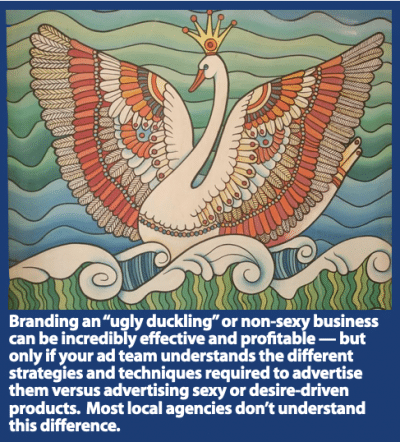 That’s what they studied: how to sell packaged goods, cars, fashion, sporting goods, booze, etc.
That’s what they studied: how to sell packaged goods, cars, fashion, sporting goods, booze, etc.
Assuming, of course, that they’re even interested in selling, rather than just creative showboating.
The unifying element for the products most creatives want to advertise is they are almost all purchased from an internal trigger, which is to say through desire.
This is an entirely different ballgame than products bought from an external trigger, I.E., “grudge purchases.”
Nobody wants to hire a moving company or call a plumber for emergency repair.
Nor can you convince somebody to hire a moving company if an external event hasn’t forced them into needing one.
In other words, you can’t sell a moving service like it’s a pizza or an iPhone.
After all, does anybody want a “unique” plumber?
It certainly wasn’t anywhere on my list of considerations on the few occasions I’ve had to call one.
Now, if you’re a retailer selling sexy or exciting products, maybe this reason for not selecting a local agency isn’t relevant for you.
But if you’re a home service or Ugly Duckling Business, it should be a major concern.
You don’t want your agency trying to sell furnaces like they were Porsches, do you?
Reason #3: They’ll Skip Over Strategy and Jump to Messaging
Frankly, making ads should be the last thing any competent agency does.
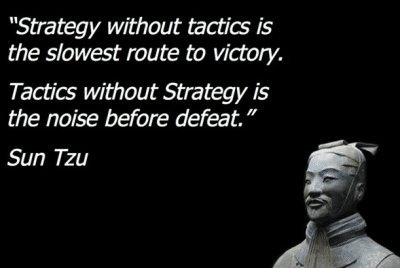 If they don’t spend a day and a half or more doing uncovery and studying your competitive landscape, they’re skipping the most important part.
If they don’t spend a day and a half or more doing uncovery and studying your competitive landscape, they’re skipping the most important part.
They should be working with you to match messaging strategy to business strategy.
Not to mention working to tailor your ads to promise the stuff your company can’t help but deliver.
But most of the time local agencies won’t do that.
At least the creative team producing your ads won’t.
Maybe the account manager will do some pro-forma exercises with you to “get to know you” but that’ll all be boiled down to bullet points in a brief that the creative team will use to, essentially, “phone it in.”
Creatives tend to think that creativity is always the answer, without bothering to formulate a coherent messaging strategy first.
Of course, the better and more experienced your ad team, the more likely they are to have learned NOT to phone it in with their messaging strategy.
But that brings up another reason local agencies might not be your best bet…
Reason #4: You Probably Won’t Get Their Best
If you’re not one of the agency’s larger clients, with a large ad budget, and therefore a large commission for the agency, then you’ll likely get handed off to a junior creative team.
Sure, the owner and head of creative might sell you, but they won’t actually handle your advertising.
Now, if you wanted to take a chance on a junior creative team, that’s great.
Just keep in mind you’re not going to pay any less for it, and the agency should be upfront about who is actually producing your ads.
This is why it’s not uncommon for a company to hire a local agency because of the great ads they saw in initial meetings, only to fire that agency down the road because what was produced for them didn’t live up to the earlier examples
Then again, maybe you’re big enough to get assigned senior people. Great. Just be sure to verify who you’re actually hiring.
Reason 5: Their Pride Will Undermine Your Success
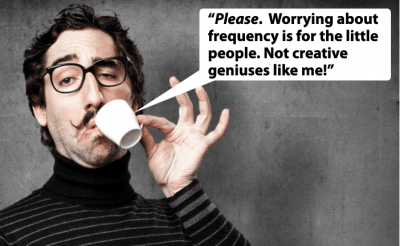 Pride goeth before the fall. But it doesn’t necessarily have to be your pride.
Pride goeth before the fall. But it doesn’t necessarily have to be your pride.
And when it comes to ad agencies, their pride contributes to your fall through lack of frequency in your ad buys.
First, the creative team’s pride deludes them into thinking that their ad (or campaign) is sooooo creative and powerful, it won’t need much repetition.
Which is bunk.
I’m not saying this never happens, but… well this pretty much never happens.
In all of advertising, there are a bare handful of ads that had a huge impact from a single showing:
- Cadillac’s “The Penalty of Leadership.”
- LBJ’s “Daisy” commercial.
- Masterlock’s Sharpshooter Super Bowl Commercial.
- Reagan’s “Morning in America”
- Apple’s 1984 Super Bowl Ad.
And that’s 5 ads in a century’s worth of advertising.
You really think your ad for, I don’t know, roofing is going to make that list?
And that’s where most agencies screw up.
Because they almost always buy too much reach and not enough frequency.
As already mentioned, the creative will delude himself into thinking his “brilliant” ads will work with mere exposure.
And the media buyer will be all too eager to brag about how many people he’s reaching with your budget to push for adequate frequency.
Cause if he sacrifices frequency for reach, he can brag about a number that you, the client, will understand instinctively.
“Look at all the prospective customers we’re reaching!”
Frequency, on the other hand, requires some explaining.
Plus buying a schedule with sufficient frequency is more expensive and harder to negotiate.
And doing so on a limited budget requires more modest reach, which makes the buy look smaller.
So the only people who care about adequate frequency are people who are actually measuring, tracking, and being paid for the effectiveness of their work
But since that’s not the case for most local agencies (see Reason #7 for more on this), then both the creative’s pride and the media buyer’s pride will push for reach over frequency.
And reaching too many people too few times is a recipe for masses of half-persuaded people and half-assed results.
Reason #6: Local Agencies Are NOT Media Agnostic
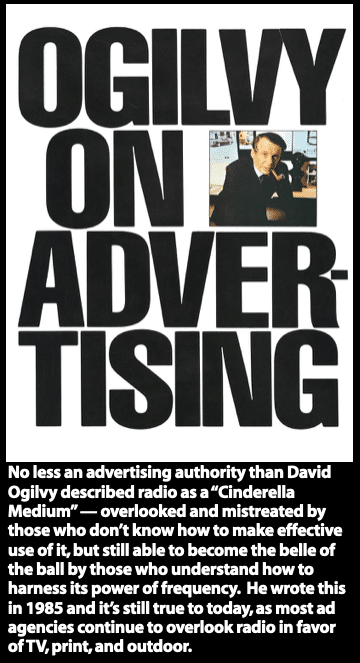 When it comes to choosing media, an agency should choose based solely on effectiveness and efficiency.
When it comes to choosing media, an agency should choose based solely on effectiveness and efficiency.
How to get you the most bang for your hard-earned buck.
But they generally don’t.
They tend to choose based on:
- Which media they prefer working with
- Which media is most likely to garner awards, and
- Which media they have the most “buddies” at.
And what media do they prefer working with?
Chances are, it’ll be visual media — print magazines, billboards, digital display ads, and TV.
You know what media they rarely ever think about?
Radio and Direct Mail.
They’re not sexy.
And their creatives aren’t trained to work in those media.
The modern creative agency was born when Bill Bernbach put the copywriter in the same office as the art director to get maximum synergy between image and words.
So those creative teams spend all of their time thinking in those terms.
They don’t think in terms of sound effects and dialogue, aka theatre of the mind.
And, yet, for most local companies, radio is by far the most efficient mass media going.
Compared to TV, radio is:
- Shockingly underpriced.
- Easy and inexpensive to get high frequency.
- Orders of magnitude cheaper for production costs.
Then there’s Direct Mail, which is often considered an advertising ghetto by creative agencies. Most even have to outsource it if they do consider it.
And because Direct Mail is the pay-for-performance media par excellence, most agency creatives are less than enthused about throwing their hats into that ring.
So chances are you’ll either be shoved into print advertising via a local magazine that likely won’t move the needle.
Or talked into very expensive TV advertising and production that your budget can’t adequately support.
All while radio (or other less-sexy media) might have been a much better bet for your company.
Reason #7: They’re NOT Pay-For-Performance Oriented
Traditional advertising agencies — including most local agencies — base their pay off of your ad budget, typically by slicing off a 15% cut of your total ad spend, (before further padding that with mark-ups from production expenses and the like).
But their pay isn’t directly tied to either your growth or the performance of their ads.
In fact, if you asked them to provide you with an average growth rate for their client list, they couldn’t provide it to you.
And as the saying goes, you can’t manage what you don’t measure.
If you’re intensely interested in creating effective ads, you’ll be measuring their impact in top line sales.
Any firm that doesn’t do that is a firm that’s probably not nearly as interested in their advertisings’ effectiveness as they claim.
Not All Local Agencies Are Like That — But Most Are
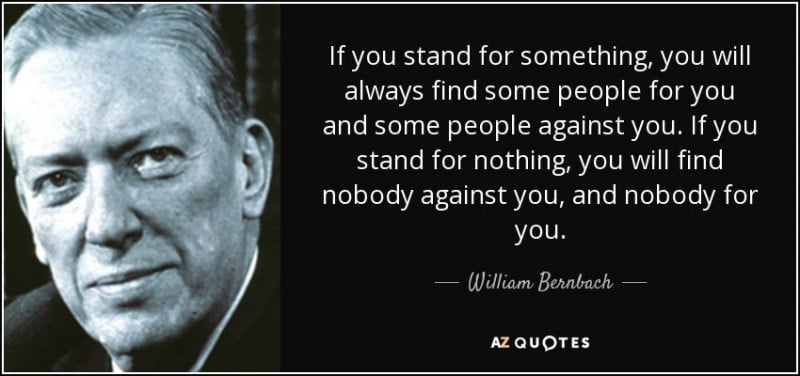
So I spent this article taking the piss out of local agencies.
And not because I have some vendetta against them.
But because much of what’s wrong with them (IMO) helps to clarify what Wizard of Ads stands against, as well as what we stand FOR.
In brief, we stand for:
- Accountable brand-based advertising focused on increased market share for our clients.
- Which means we stand for only working with one company in a given industry within a given town or service area. We work for you and you alone.
- Accountable brand-based advertising focused on increased market share for our clients.
- Advertising that works for the vast majority of local small businesses, many of whom are “Ugly Duckling” (aka un-sexy) businesses.
- Business strategy first, messaging strategy second, and writing the ads last.
- Taking a media-agnostic approach to spending our client’s money.
- We believe that it’s the message that makes the media work and not the other way around.
- Taking a media-agnostic approach to spending our client’s money.
- Convincing 10 people 100% of the way always beats convincing 100 people 10% of the way. The first method yields 10 new customers. The second yields nothing but wasted ad budget.
So… if you’re a not-yet-huge company in a non-sexy-business category that would prefer to work with an ad team that’s exclusive to them on a pay-per-performance basis, might I suggest that you put the Wizard of Ads partners on your shortlist?
Might I even be so bold as to suggest you reach out to me for a conversation about that shortlist?
- Are You Paying for Too Much for the Wrong Keywords? - July 15, 2024
- Dominate Your Market Like Rolex — 4 Powerful Branding Lessons - July 3, 2024
- Military-Grade Persuasion for Your Branding - June 25, 2024
